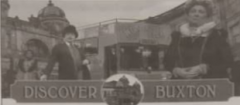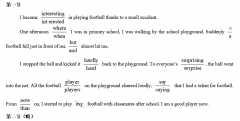遵义航天高级中学2016届三模英语试题及答案(2)
Mr. Kloehn says his work is not a social project. He says he is just someone using his skills to help his homeless neighbors.
21. The following are the advantages of the small shelters EXCEPT ________.
A. saving power and energy B. decorating the streets where they are
C. protecting possessions of the homeless D. keeping the homeless safe and comfortable
22. We can learn from the passage that ________.
A. An act of kindness has made people simple and grateful
B. Greg Kloehn has sold at least 20 tiny houses
C. The shelters are immovable
D. The government has got involved in the action
23. What’s the main idea of the passage?
A. A more comfortable shelter on the streets.
B. An artist creates homes for the homeless.
C. A successful social project in Oakland.
D. An artist makes a living by designing small shelters.
B
Most of us have quite good memories, but our memories are limited. For example, we cannot remember everyone we have ever met or what we did on every single day of our lives. However, there are some people who do have prodigious memories. These people have a rare condition known as savant syndrome (学者症候群). Savants suffer from a developmental disorder, but they also exhibit great talents that contrast(显出差异) sharply with their physical and mental disabilities.
Kim Peek (1951-2009) was a savant who lived in Salt Lake City, Utah, in the United States. He was born with damage to parts of his brain, but it seemed that other parts of his brain, particularly those relating to memory, became over-developed.
Peek’s unique abilities appeared at a very early age. When he was just 20 months old, he could already remember every book that was read to him. Peek could read two pages of a book at the same time---one page with the right eye and one with the left---in less than 10 seconds and remember everything he read. By the time he died, Peek had memorized more than 9,000 books. He could remember all the names and numbers in a variety of telephone books. He could remember thousands of facts about history, literature, geography and sports.
Dr. David Treffert, an expert on savant syndrome, once described Peek as “a living Google” because of his astonishing ability to memorize and connect facts. However, at the same time, Peek was unable to carry out simple tasks, such as brushing his hair or getting dressed, and he needed others to help him. In 1989, the movie Rain Man won the Oscar for best Picture. The main character in the movie, played by Dustin Hoffman, was based on Kim Peek’s life. He started to appear on television, where he would amaze audiences by correctly answering difficult questions on different topics. Peek became world famous, and he and his father began touring widely to talk about overcoming disabilities. He inspired a great many people with his words. “Recognizing and respecting differences in others, and treating everyone in the way you want them to treat you, will make our world a better place for everyone. Everyone is different.”
24. The underlined word “prodigious” in Paragraph 1 probably means ________.
A. happy B. vivid C. amazing D. short
25. According to the text, Peek ________.
A. could take care of himself B. was born with a good memory
C. was the student of Dr. David Treffert D. became brain-damaged at 20 months old
26. How is Paragraph 3 mainly developed?
A. By proving facts. B. By following time order.
C. By analyzing causes. D. By making comparisons.
27. Peek’s words suggest that we should ________.
A. respect different cultures B. listen to different opinions
C. treat different people differently D. be respectful of others’differences
C
Wild weather, unexpected coral reefs and dangerous sea creatures… these are the nightmares (噩梦) you can imagine a teenager on a solo voyage (独自旅行) around the world might suffer from. But for Laura Dekker, sailing around the globe seems less a price to be paid than a prize to be treasured.
As the 19-year-old Dutch sailor said in Maidentrip, a documentary(纪录影片) released last year about her experience of becoming the youngest person to sail around the world alone in 2012, “I was born on a boat. I lived my first five years at sea. And ever since, all I have wanted is to return to that life.”
With her yacht(游艇) Guppy, Dekker began her journey at 14 and sailed 50,004 kilometers in 519 days.
The flying fish keeping her company, the dolphins following in her wake and the warm days spent on deck playing the flute (长笛) as she watched another unforgettable sunset were enough to make others jealous.
But these didn’t always go well. There were terrible moments in which Dekker feared death. On one occasion, a whale almost turned Guppy over. Another time, she battled extreme winds and Guppy surfed down 8-meter-high waves.
Out on the open sea alone, she also got used to living without a fridge, a flushing(用水冲洗) toilet, and a hot shower.
“As a human being you don’t need much,” she told Stuff.co.nz. “ They might make life more comfortable, but you really don’t need them to be happy.”
In fact, her outlook on life was shaped by the trip. “I wanted the storms. I wanted the calms. I wanted to feel loneliness,” she told The New York Times. “And now I know all these things. It’s the end of the dream I had as a child, and it’s the beginning of my life as a sailor.”
28. According to the text, in which year did Dekker begin her journey of 50,004 kilometers at sea?
A. In 2012 B. In 2010 C. In 2009 D. In 2011



